7 Reasons Seaweed Is Such A Buzzy Ingredient In Health And Beauty Right Now

Oceans make up about 70 percent of our planet, so it’s only natural that holistic hidden treasures live beyond the shore. Seaweed, for instance, absorbs nutrients from the seabed, making the marine vegetable packed with even more nutrients and vitamins than mainland-grown fruits and veggies.
Lately, we’ve been noticing the unlikely superfood popping up everywhere: in our drinks, meals and even our skincare. The salty snack is popular in plant-based diets, as it is a unique vegan source of essential amino acids. Meanwhile, seaweed is an abundant, carbon-negative food source (meaning it doesn’t require water or fertiliser to harvest), so it's ideal for eco-conscious consumers. If you’re still not convinced about adding seaweed to more than just your sushi rolls, read on for its potent benefits-plus easy ways to incorporate into your everyday routine.
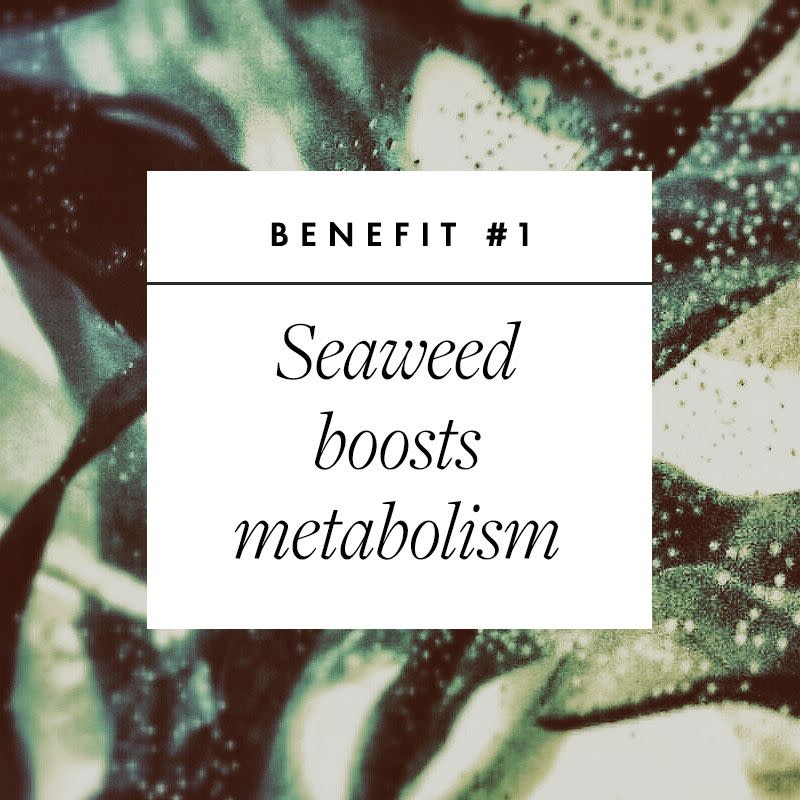
The edible form of algae is high in fibre, which is great for promoting satiety, reducing bloating and easing digestion. 'Seaweed contains both soluble and insoluble fibre, making seaweed a great prebiotic source to support gut health,' explains dietitian Chelsea Gloeckner, MS, RD.
'These fibers include particular sugars called sulphated polysaccharides, which have been shown to increase the growth of ‘good’ gut bacteria and also increase the production ofshort-chain fatty acids (SCFA), which provide support and nourishment to the GI tract cell lining,' adds dietitian Rachel Fine MS, RD, CSSD, CDN .
Tip: Gloeckner suggests adding seaweed strips to your favourite soups and salads.

The underwater wonder contains many immune-boosting minerals and vitamins. 'Seaweed is a source of a potent antioxidants, including alginate and fucoxanthin,' says Fine. 'There is promising research showing potential anti-inflammatory benefits that may relate to reducing the risk of diabetes and obesity.'
Thanks to iodine and an amino acid called tyrosine, the 'grass' of the sea also benefits the thyroid and may help prevent thyroid disease. Seaweed also contains polyphenols, 'which can support anti-cancer processes in the body,' adds functional medicine expert Dr. Elroy Vojdani, MD.
Tip: The salty snack is more nutrient-dense than crackers and has fewer carbohydrates, explains dietitian Monica Auslander Moreno, MS, RD. She suggests toasting it with olive or avocado oil (and avoid pairing it with foods that have artificial chemicals or sweeteners).
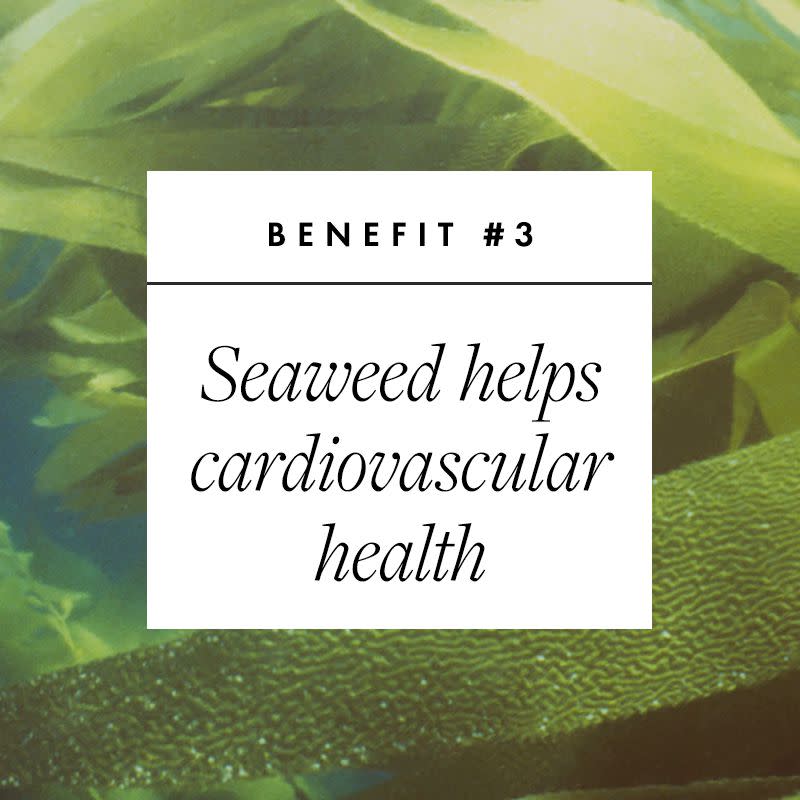
It turns out seaweed is good for your ticker. Some studies have shown the plant to reduce the risk of heart disease, while many experts agree that it stabilises blood sugar levels, thanks to its rich fibre content. 'Seaweed is rich in fibre, which [can reduce] blood lipids and improve blood sugar control,' notes dietitian Suzanne Fisher. Celebrity nutritionist and chef Serena Poon adds, 'Seaweed fuels our bodies with the ability to help regulate and detox our blood and lymphatic system.'
Tip: Consider cooking with algae oil, instead of traditional extra virgin olive oil, to stir-fry your favourite veggies. Bonus points for sprinkling seaweed seasoning on your meal of choice.
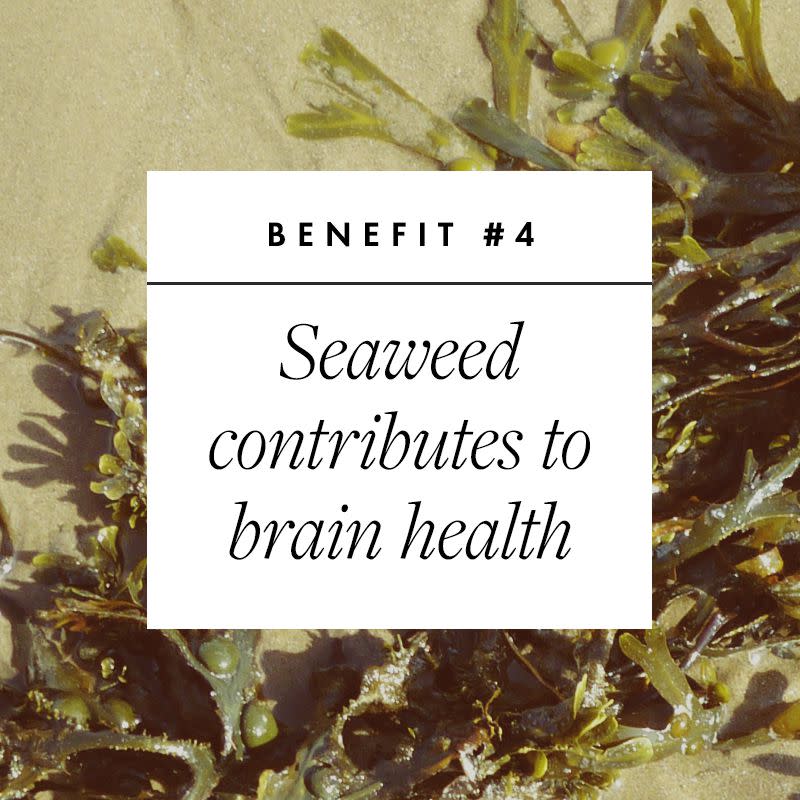
Go on, let the seaweed benefits get to your head: Experts, including Vojdani and Montemayor, agree that the omega-3 fatty acids, EPA, and DHA found in seaweed are great cognitive health, which can include improved memory and performance. Some populations also rely on the food for brain development in children.
Tip: Swap your go-to pasta with kelp noodles, which are a gluten-free, fiber-rich alternative lowin carbohydrates.

Seaweed-whether applied topically or ingested-is great for combating acne and signs of ageing. According to Poon, its minerals, including calcium, zinc, iron, sodium, potassium and magnesium, reduce inflammation and help protect skin from dehydration as well as free radical and sun damage.
'The rich vitamin C in seaweed provides the added beauty benefit of supporting collagen production, and the natural niacin is great for hyperpigmentation and blemishes.' Another celeb-approved holistic nutritionist, Sally Pansing Kravich, agrees adding, 'Chlorella is a cleansing seaweed that is helpful for removing toxins, heavy metals and radiation.'
Tip: 'We can wrap ourselves in seaweed to nourish our skin and draw out toxins-or ingest it for the same benefits,' recommends Kravich.
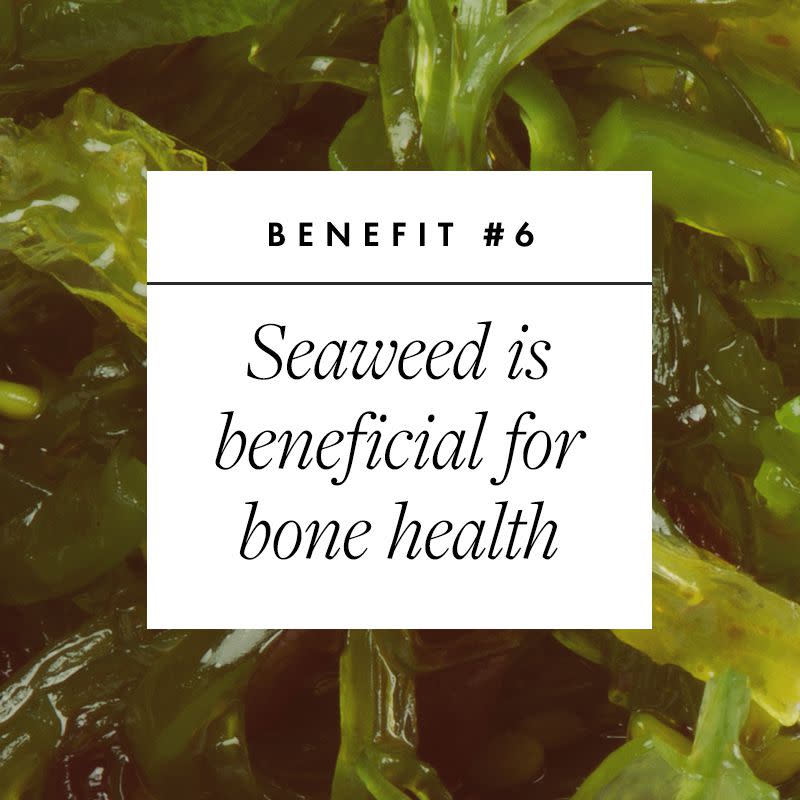
The iron and calcium found in seaweed support the bones, while the omega-3 fatty acids are beneficial for joints.
Tip: 'Agar is a form of seaweed that is a good substitute for making gelatine and a vegan replacement for bone broth,' notes Kravich.
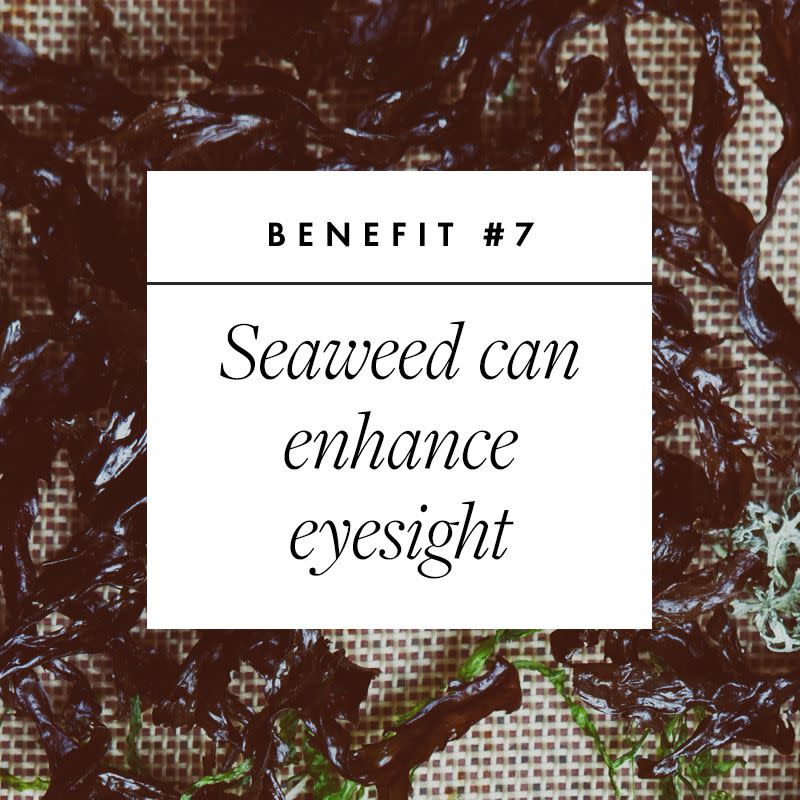
Similar to carrots (and avocados!), seaweed can help your vision. 'Although seaweed is low in fat, it typically contains small amounts of essential omega-3 fatty acids,' explains Ysabel Montemayor, a lead dietitian for Fresh n’ Lean. 'This is a type of fat that many of us don't get enough of and [is] good for eye health.' Additionally, seaweed contains astaxanthin, a powerful nutrient that protects eyesight.
Tip: Try adding spirulina into your juice, smoothie or yoghurt. 'This type of seaweed contains all essential amino acids and is trending as an add-in to drinks such as kombucha,' notes Montemayor.
('You Might Also Like',)
